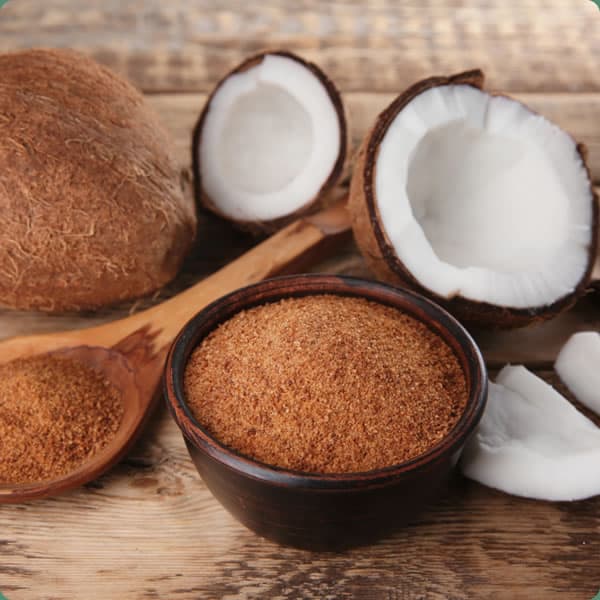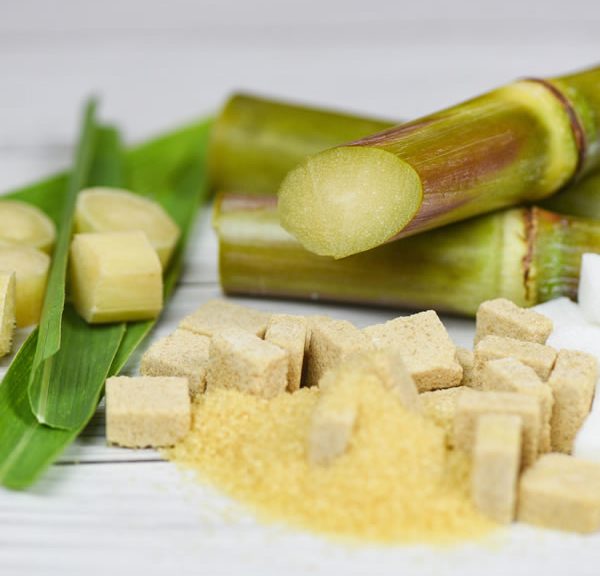
Previous
Denifanstat May Expand Treatment Options for People with Fatty Liver Disease

Next
NAC and Liver Health: How Good Is NAC for the Liver?
How Sugar Impacts Your Liver and the Healthiest Sugar Types
Find out about sugar’s impact on liver health, different sugar types, and which type of sugar is best for people with liver disease.
It’s no secret that eating foods high in added sugar isn’t good for our health. Consuming too much of these sweet substances raises our risk of obesity, diabetes, and cancer, and can even be harmful to our hearts. (1) But if you’re one of the estimated 100 million Americans living with liver disease, (2) you may also be wondering if your sugar intake may be having a negative impact on your remaining liver function and health. Let’s take a look now at how sugar impacts your liver.
Can Sugar Affect Your Liver?
Unfortunately, the answer is yes. Research reveals that sugar can be just as damaging to your liver as it is to your other bodily organs and overall health.
For example, in a 2023 review published in the journal Hepatology Communications, researchers from Emory University in Atlanta, Georgia, discuss the connection between high added sugar intake with an increased risk of nonalcoholic fatty liver disease (NAFLD), a condition that has since been renamed metabolic dysfunction-associated steatotic liver disease (MASLD). (3)
This research adds that the negative impact of sugar on the liver expands beyond the organ itself. It can also contribute to the development of other health conditions commonly associated with liver disease, including chronic kidney disease and cardiovascular disease, as well as advancing the onset or progression of type 2 diabetes.
Understanding the Different Sugar Types
To be clear, when we talk about added sugar, we’re not talking about the natural sugars found in whole foods like fruit, grains, and dairy. Instead, we’re speaking of the sugar that manufacturers add to different food products in an attempt to either improve their flavor or to make them last longer before spoiling.

Added sugars can include:
- Granulated sugar – Also referred to as table sugar and typically added to coffee, used atop breakfast foods like oatmeal and cereal, and a common ingredient in desserts and other sweet treats. It comes in the form of white sugar, brown sugar, powdered sugar, etc.
- High fructose corn syrup – A sweetener derived from corn that is often found in sugary drinks, condiments, canned foods, and other baked treats.
- Artificial sweeteners – Sugar substitutes that are made in a lab and typically lower in calories than table sugar. Examples include Equal, Splenda, and NutraSweet.
- Syrups – Thick liquids often made by mixing water with sugar, some of which come from plants such as maple trees (maple syrup) or blue agave plants (blue agave syrup).
- Honey – Another thick, natural sweetener that comes from bees.
Which Type of Sugar Is Best for People with Liver Disease?
The healthiest types of sugar are those derived from natural sources. Research has failed to find a direct association between natural sweeteners like stevia (which comes from the Stevia rebaudiana plant) and trehalose (found in a variety of plants and insects) and fatty liver disease, and they may even offer a protective effect. (4)
Cane sugar (sometimes called turbinado sugar, which is brown as it comes from the molasses in sugar cane) is another less processed sugar option, as is sugar derived from coconut palm tree sap (coconut sugar).

While some people with liver disease may gravitate toward artificial sweeteners in place of table sugar, research recommends against this – especially for those with diabetes or obesity. (4)
Health Tips When Using Sugar and Other Sweeteners
Just because natural sugars are healthier, this doesn’t mean that you can use them in limitless amounts. To keep your sugar intake on the healthier side, for both your liver and overall health in general, here are a few tips:
- Monitor your intake. The Dietary Guidelines for Americans recommends limiting added sugar intake to less than 10% of your total calorie intake, with children under the age of 2 avoiding added sugars completely. (5)
- Read labels. Many foods contain added sugar, some of which you might never suspect without reading the label. For instance, ketchup, barbeque sauce, and salad dressings all often contain added sugars. You’ll also find them in a lot of granola bars, yogurt, pasta sauces, and other foods.
- Pay attention to the effects. Even natural sugars can have uncomfortable side effects. Stevia and sugar alcohol (commonly used in products labeled sugar-free) can make you feel bloated, give you gas, or cause diarrhea; you may also notice that you have more food cravings or feel hungrier. (6) If you notice any of these effects, you might want to either switch sweeteners or try to phase them out of your diet altogether.
- Satisfy your sweet tooth with whole foods. You don’t have to give up all sweets to support your liver’s health. Reaching for fruit is a great way to satisfy your urge for something sugary. Sweet potato is another option, which you can add a little pizzazz to by sprinkling it with a bit of cinnamon.
What’s your favorite healthy sweetener and how do you keep from going overboard with your sugar intake? We’d love to hear from you, so please share your thoughts and opinions in the comments below!
(1) Harvard Health Publishing, Harvard Medical School. (2022, January 06). The Sweet Danger of Sugar. Retrieved December 04, 2024, from https://www.health.harvard.edu/heart-health/the-sweet-danger-of-sugar
(2) American Liver Foundation. (2023, September 11). How Many People Have Liver Disease? Retrieved December 04, 2024, from https://liverfoundation.org/about-your-liver/facts-about-liver-disease/how-many-people-have-liver-disease/
(3) Huneault, H.E., et al. (2023, November 06). The Impact and Burden of Dietary Sugars on the Liver. Hepatology Communications. doi:10.1097.HC9.0000000000000297
(4) Kakleas, K., Christodouli, F., Karavanaki, K. (2020, March). Nonalcoholic fatty liver disease, insulin resistance, and sweeteners: a literature review. Expert Review of Endocrinology & Metabolism. doi:10.1080/17446651.2020.1740588
(5) USDA and Department of Health and Human Services. (2020, December). Dietary Guidelines for Americans 2020-2025. Retrieved December 04, 2024, from https://www.dietaryguidelines.gov/sites/default/files/2020-12/Dietary_Guidelines_for_Americans_2020-2025.pdf
(6) Mayo Clinic. (2023, January 10). Artificial Sweeteners and Other Sugar Substitutes. Retrieved December 04, 2024, from https://www.mayoclinic.org/healthy-lifestyle/nutrition-and-healthy-eating/in-depth/artificial-sweeteners/art-20046936






